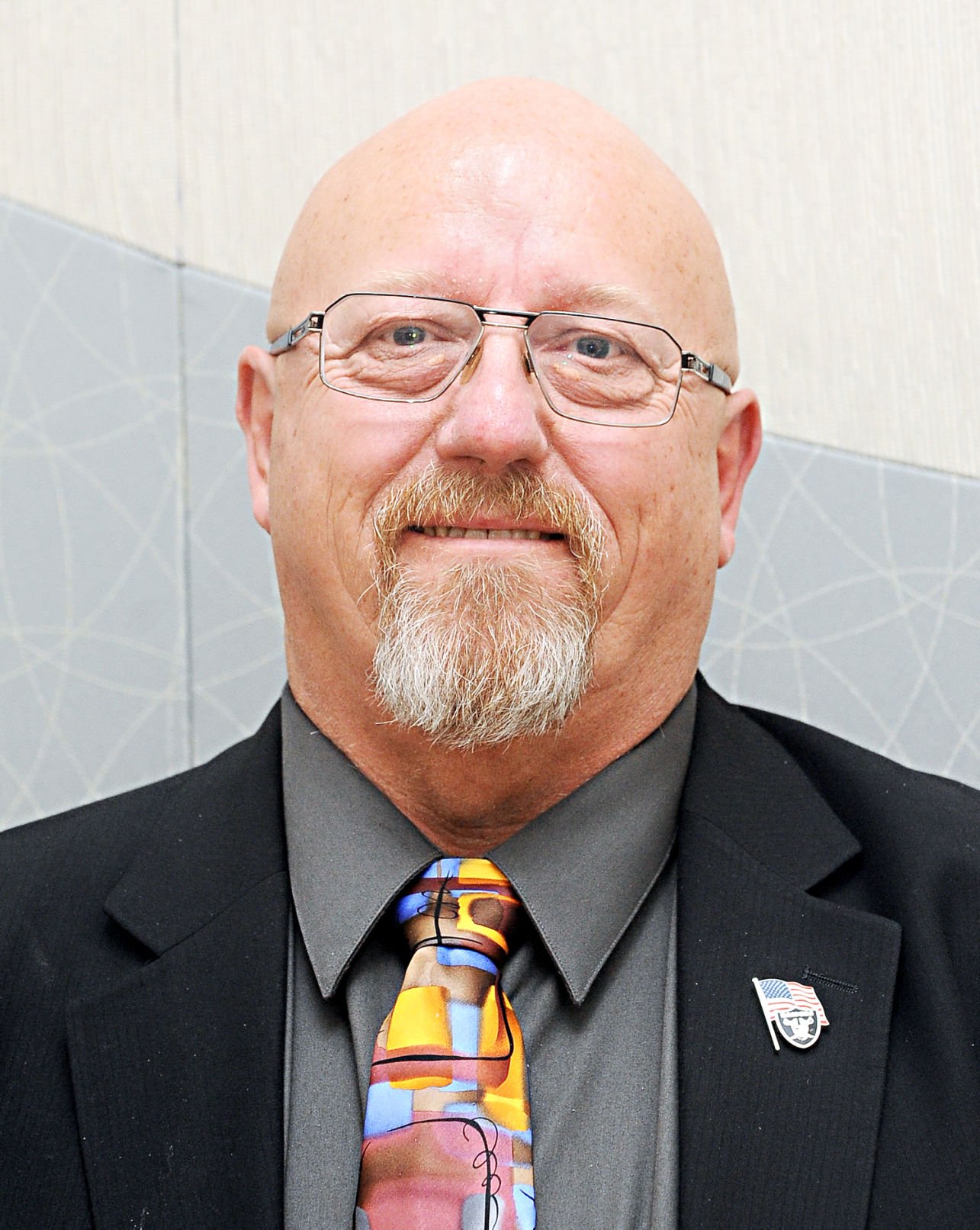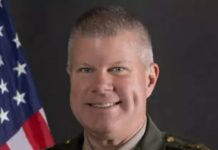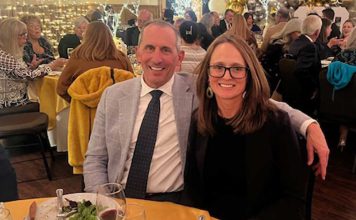Gilroy Dispatch: Please briefly describe your background and experience. Why do you believe you’re qualified for this position?
Dion Bracco: I’m a fourth-generation Gilroyan, local business owner and have served on the Council since 2005. I am a Board member of the Gilroy Gang Task Force, South County Youth Task Force, South County Regional Waste Authority and the Santa Clara County Joint Powers Authority. I am also a founding Board member of the Gilroy Compassion Center.
I have been involved in many of the major decisions made on the Council in recent years, like balancing the budget and enacting pension reform, constructing the new library, purchasing Gilroy Gardens, creating the youth center at San Ysidro Park, re-opening Sunrise Fire Station, and redeveloping downtown. I have the knowledge and skill set—derived from my roles in both the private and public sectors—required to tackle the future issues coming before the Council.
GD: What unique skills, talents, passions, insight or other qualities do you have that will help you govern the city of Gilroy?
DB: With my background in the private sector plus my experience on the Council, I am intimately familiar with the needs of this community and the type of solutions we need to be looking for. My involvement in fighting drug abuse and homelessness, for example, is key to keeping our streets safe and our neighborhoods secure. My business perspective influences my solid commitment to fiscally responsible policies which are fair to taxpayers as well as making the regulatory and permit processes more amenable to business and job creation.
What are the biggest issues or challenges facing Gilroy residents right now and over the course of the next four years? What are some topics of particular interest to you, or important issues on your personal radar?
Keeping youth out of trouble and fighting the growing gang issues in our community is paramount. That is why I worked with Police Chief Turner to create the South County Youth Task Force, working with our regional partners to offer our youth a better alternative to the gang life style and we are making a difference.
Homelessness is a growing issue in our community that we will have to face in the coming year, this is something that has always weighed on my heart. That is why I became one of the founding board members of the Gilroy Compassion Center. This is a highly complex issue and it will take a lot of good people to end homelessness in our community.
What is your position on Measure F, the half-cent general-purpose sales tax measure on the ballot?
I have consistently said that this is a decision for the voters to make based on the public’s assessment of the needs of the community which are certainly substantial.
We clearly have need for additional revenues for streets and sidewalk repairs, public safety, etc. If Measure F passes, I want to be at the table to ensure these tax dollars are well-spent. I believe that every dollar should benefit our community as a whole.
There is a lot of misleading information and outright lies being put out by a group with an out-of-town address calling themselves Gilroy Citizens Opposing Measure F.
Their claims of no accountability are untrue and they know it. There will be a citizens’ oversight committee. They also claim it will be used for fancy dinners and out-of-town trips and retreats. This is false. During my time on Council, our retreats have been held at the Police Department and I have never had a trip paid for by the City. Quite the contrary—as Council members—we represent Gilroy on many County and regional boards and commissions monthly at out-of-town meetings and Council members pay for all their travel, gas and meals out of their own pockets.
Some city officials have said that if Measure F doesn’t pass, the city won’t be able to fund a variety of projects, from miles of street and sidewalk repairs to an upgrade of 9-1-1 emergency communications equipment. If the tax does not pass, how would you propose infrastructure repairs receive funding?
If Measure F fails, we will continue making the hard choices to fund what we can and putting other things on hold; we will always make sure that our residents are safe. That is the Council’s top priority, but other important projects like parks, sidewalks, street repair, youth and senior programs may feel the shortage of funds when things get tight.
More than 80 percent of the city’s General Fund supports public safety, including equipment costs for police and fire, salaries, benefits and other related expenses. Do you think that number is too high, or do you think that percentage should increase as our community grows? Why or why not?
The 80% number is misleading and used by those who are trying to mislead the public or they just don’t know what they’re talking about. Total general fund expenditures for public safety are 64.95% when you consider that the city has 247 employees with 136 of those working in public safety. The cost for public safety is pretty much in line with spending in other departments. Public safety is like an insurance policy: you hope you won’t need it, but if you do you’re glad you have it. The question comes down to how safe do you want to be? The community has made it clear that they want a proactive police force and they want fire to respond in under 5 minutes with paramedics on fire engines.
What will it take for Gilroy’s downtown to flourish? And what do you believe the city’s role, and your role if elected to the council, should be in making that happen?
Things downtown are improving, buildings are being repaired, the Downtown Association is strong and organized and I think the downtown is set to take off.
I believe that we need to continue and expand efforts to streamline the process businesses need to navigate in order to locate in Gilroy and conduct commerce here.
We need the Planning Department and other city staff to be more cooperative in assisting businesses in this process, and we should move in the direction of a “one-stop” shopping approach which allows business owners and job creators to have a much shorter, less costly, and more efficient way to complete and submit the required applications and permits with expedited approval.
Are you satisfied with the amount of public participation in local government, from attending planning commission and council meetings, for example, to voting in elections, and what would you do to encourage more participation in local government by community members?
I certainly believe a greater use of town hall meetings, neighborhood coffees with the Mayor and Council members, e-newsletters and social media to keep the public informed and other such tools are important in stimulating interest and participation on the part of voters.
Gilroy’s fiscal outlook is improving and revenues are growing, especially when compared to the Great Recession. Like anything, our financial picture can change with the times and leaders may need to make tough decisions to balance the budget. If Gilroy’s budget were in the red right now, how would you go about analyzing where to trim city government and balance that with providing residents with essential services?
I have a proven track record being on the Council through the great recession and making the hard choices. I had to make decisions to lay off people I had gone to school with and knew most of my life. I learned some important lessons like acting quickly, many of our neighbors did not want to make the hard decisions hoping things would just get better and they paid the price for their inaction. This is why it is so important to maintain healthy reserves because we will have other recessions and challenges to our budget.
Do you think the city can and should do more to allow members of the public a chance to see behind the curtain during public employee negotiations, whether it’s publishing offers and counter-offers on the city’s website after they’re proposed or opening up the actual negotiation process to residents? Why or why not?
No, I don’t believe that would be a good idea for employer or employee. Who would want their pay being negotiated in the newspaper? And, the city uses strategies when negotiating that would hurt the city’s position in future negotiations with our other labor groups. Our current procedure of working together without using attorneys or other representatives has worked very well.















